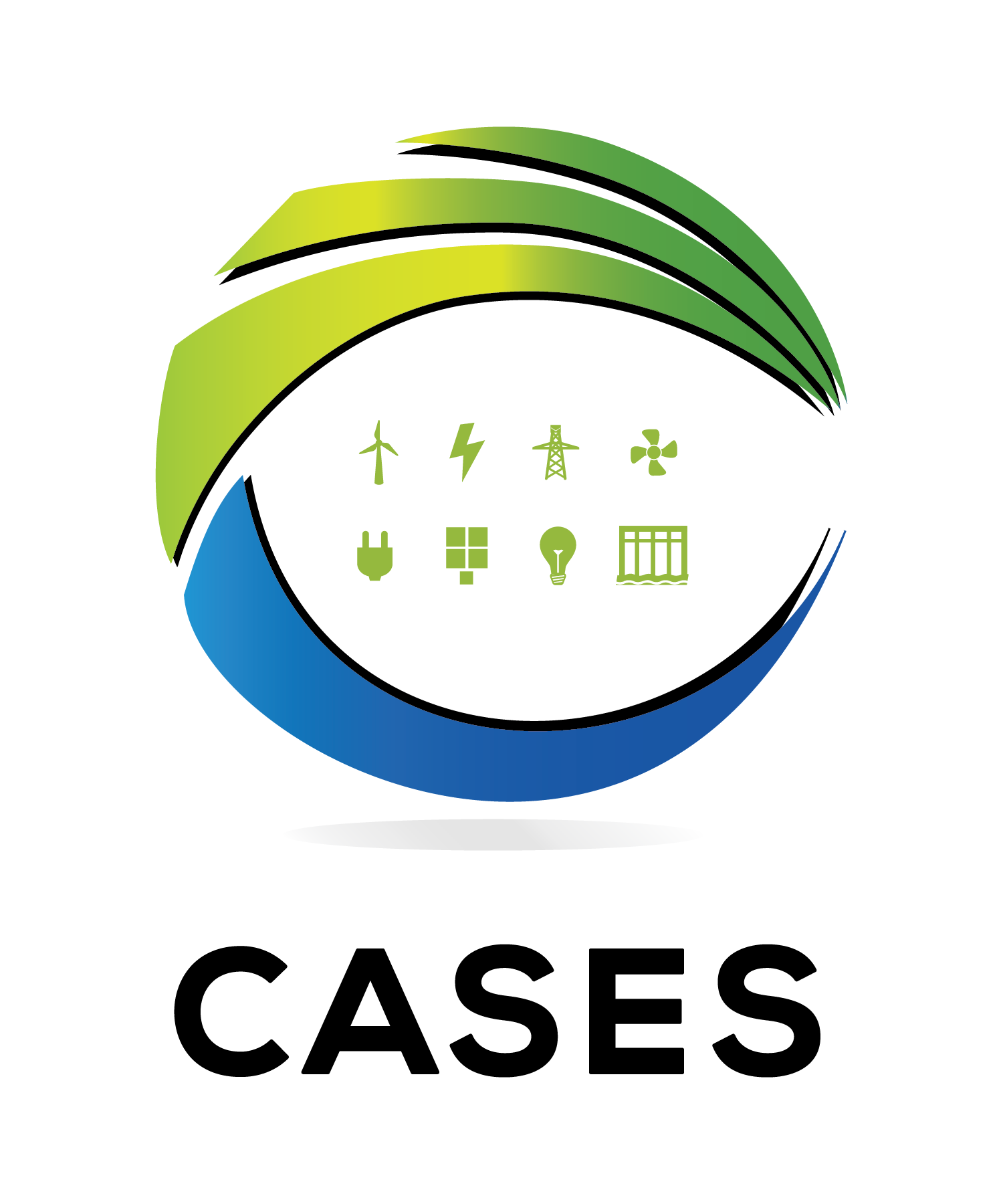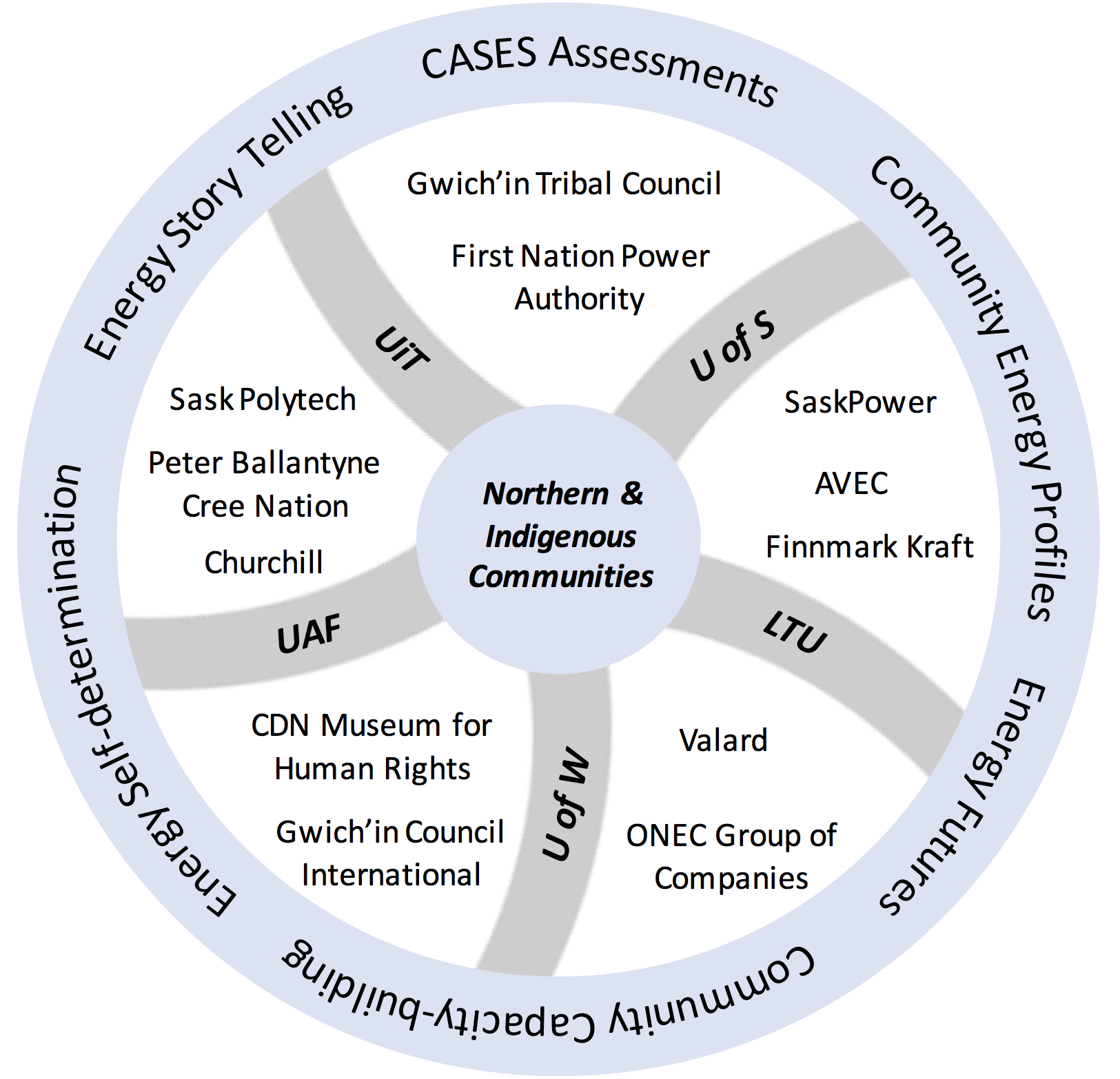Community Appropriate Sustainable Energy Security (CASES) Partnership
The Community Appropriate Sustainable Energy Security (CASES) Partnership is an international research initiative involving 17 northern and Indigenous communities and public and private sector project partners from Canada, Alaska, Sweden, and Norway.
Hosted by the University of Saskatchewan, the overarching goal of the CASES initiative is to reimagine energy security in northern and Indigenous communities by co-creating and brokering the knowledge, understanding, and capacity to design, implement and manage renewable energy systems that support and enhance social and economic values.
The CASES Partnership facilitates the sharing of experience so that not all communities have to experience the same challenges or recreate solutions, thereby expediting the learning experience and accelerating renewable energy innovation.
Our unique knowledge sharing platform will enhance community capacity by providing bestin-class examples and ‘how to’ instructions for northern and Indigenous communities to pursue community energy planning, assess and prioritize local energy needs, and ensure sustainable transition.
To date, we have secured over $8 million in funding, including $2.5 million in support from the Social Sciences and Humanities Research Council (SSHRC) of Canada.

CASES Partnership Objectives

The CASES Partnership will pursue the following objectives:
i. Co-develop and apply tools for assessing, understanding, and enhancing the social and economic value of renewable energy in northern and Indigenous communities.
ii. Determine the necessary and sufficient conditions, including common challenges and solutions, for successfully introducing renewables into the energy mix of northern and Indigenous communities.
iii. Facilitate co-learning between partners and ‘sister communities’ to share knowledge and innovations that contribute to long-term sustainable energy security, through a network of model energy communities across the Circumpolar North.
iv. Create a northern Circumpolar knowledge sharing platform, comprised of model community energy plans, energy transition tool-kits, and stories from international experience for communities, utilities and researchers to network, exchange knowledge, and facilitate long-term capacity building.
v. Train a new generation of interdisciplinary researchers, policy makers, and practitioners to transform energy systems and promote sustainable energy patterns in northern and Indigenous communities.
CASES Project Partners

Our overarching goal is to co-create and broker the knowledge, understanding, and capacity to design, implement and manage renewable energy systems that support and enhance social and economic values in northern and Indigenous communities. The importance and value of a partnership approach in achieving this goal cannot be overstated.
Our project partners (21) include:
- Alaska Village Electric Cooperative
- Alaska Center for Energy and Power (ACEP)
- Canadian Museum for Human Rights
- Finnmark Kraft
- First Nations Power Authority
- Gwich'in Tribal Council
- Gwich'in Council International
- Lulea University of Technology
- Mitacs
- NTPC
- ONEC Construction Inc.
- Peter Ballantyne Group of Companies
- QUEST
- Saskatchewan Polytechnic
- SaskPower
- Social Sciences and Humanities Research Council (SSHRC) of Canada
- UiT Norway
- University of Alaska Fairbanks
- University of Winnipeg
- Valard Construction LP
- York Factory
CASES Leadership
The CASES Partnership project is led by two Co-Directors at the University of Saskatchewan - Dr. Greg Poelzer, a professor with the School of Environment and Sustainability (SENS) and Dr. Bram Noble in the Department of Geography and Planning. Both Poelzer and Noble provide oversight and direction for the project, engaging partner groups, and ensure that the proejct objectives are achieved. They were supported by Jackie Martin, who was a dedicated Project Manager for the partnership project till 2024.
The larger core and collaborator research teams include expertise from across Western Canada, Alaska, Norway, Sweden, Finland and throughout the circumpolar north.
Loading...

@usaskrenewable on Twitter
Tweets by usaskrenewableIn the Press
November 10, 2021, COP26: Reimagining Energy Leadership: Achieving our SDGs through a human-centric energy transition, Panel Discussion (G. Poelzer). See Resources tab for video link.
October 5, 2020, USask’s Poelzer named to Senate advisory board (Usask)
July 20, 2020, Beaufort Delta communities see new research opportunities thanks to COVID-19 restrictions (CBC)
July 11, 2020, USask project supports northern energy security (On Campus News)
Apr 9, 2020, Promoting Energy Independence from the groud up (NNSL)
Mar 11, 2020, Greg Poelzer, US Election Broken Down
Feb 7, 2020, Keeping the lights on all the time (Industry West Magazine)
Feb 2020, SARM, FNPA & UofS Sign MOU, Rural Councillor, page 14
Feb 2020, Pipelines: Key transition infrastructure to a Sustainable Energy Future, Rural Councillor, page 18
Jul 19, 2019, Greg Poelzer, Northern communities selected for UofS renewable energy project (LaRongeNow)
Jul 19, 2019, Greg Poelzer, UofS research team receives $2.5 million to study energy independence in northern communities, (650 CJME/CKOM Radio)

